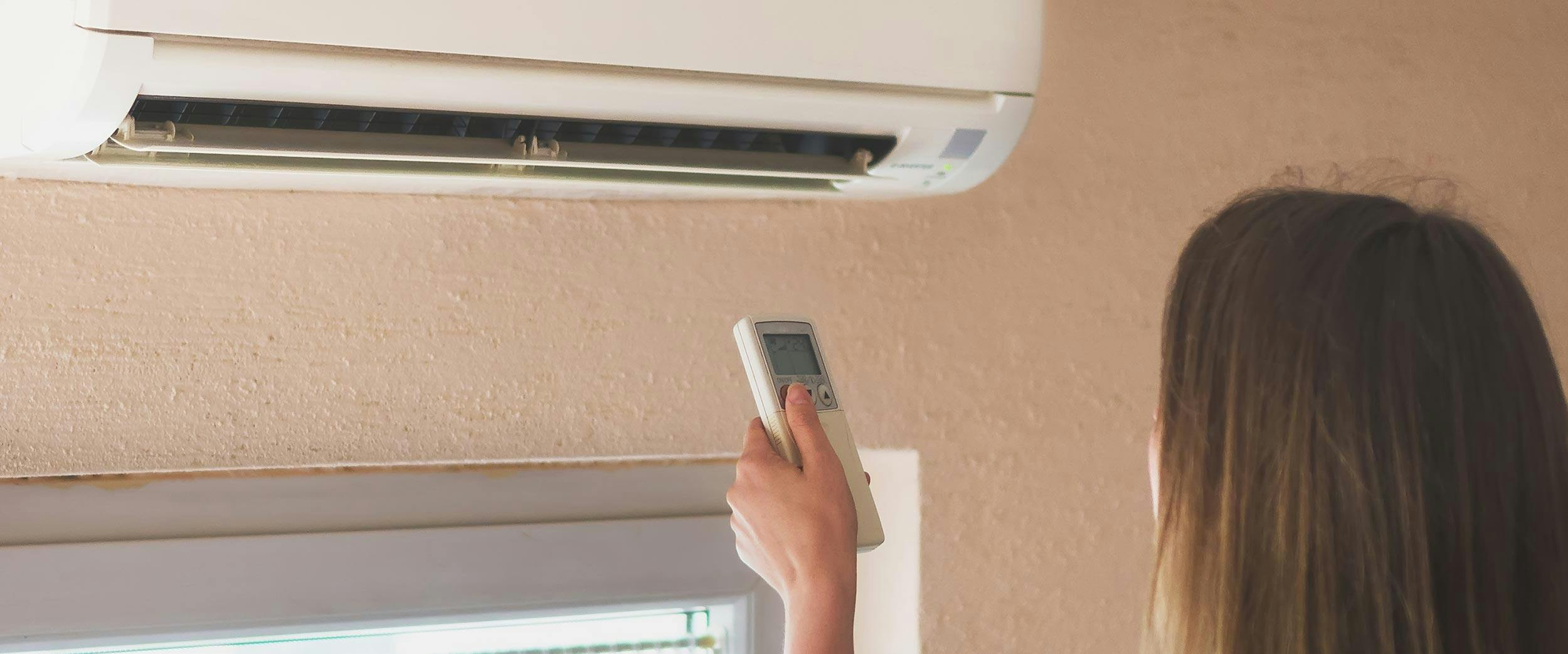
Summer is here, and that means rising temperatures—outside and inside. It’s no doubt air conditioning makes living more bearable, especially in hotter regions and during the warmer months. However, many people believe that air conditioning is a modern necessity, but as a property owner, are you responsible for air conditioning? And on the flip side, what are your renters’ rights to A/C?
Are Landlords Legally Required to Provide Air Conditioning?
In most states, landlords are not required to provide air conditioning according to landlord-tenant laws. The majority of jurisdictions consider air conditioning an amenity rather than a requirement of habitable living conditions. Though laws and specific language vary per state, landlords’ responsibilities fall under the warranty of implied habitability, which means that the rental is in a condition that’s fit to be occupied.
Implied Warranty of Habitability Expectations
There is no national standard that defines “implied warranty of habitability,” but for a home to be habitable, common expectations include the following:
- Working gas, heating, electric, and plumbing systems
- Operational sinks, toilets, tub/shower as well as hot water
- Non-leaking roofs and walls
- Doors that lock
- Freedom from health hazards, including asbestos, lead, and mold
- A place to sanitarily dispose of garbage
- Extermination of pest infestations
- Adequate ventilation
- Safe emergency exits (points of egress)
- Working smoke and carbon monoxide detectors
Habitability is based on safe, sanitary, and secure living conditions. That does not mean a unit has to be perfect, aesthetically pleasing, or luxuriously comfortable.
Disability Accommodations
In some cases, your tenants might have medical conditions that require them to have operational air conditioning. In that case, providing some kind of air conditioning (like a window unit or portable/free-standing unit) would be considered a reasonable accommodation. Additionally, Texas rules it as the landlord’s role to repair or remedy any condition that materially affects the physical health and safety of any tenant. That means providing air conditioning when conditions create an extreme level of discomfort and health hazards (i.e. hyperthermia and heat stroke).
Rentals in Arizona and Dallas Must Have A/C
In Arizona, where temps regularly soar into high triple digits regularly and heat-related deaths are unfortunately too common, the law regards air conditioning as an essential need for a unit to be safely occupied. Here, a tenant has a right to air conditioning and the landlord is required to provide it. In some Arizona cities, there are laws that regulate the temperature of rental units based on the cooling method. In Phoenix, rental units that use air conditioning cannot exceed a maximum temperature of 82 degrees. Units that use evaporative coolers are allowed a maximum temperature of 86 degrees.
In Dallas, landlords are required to provide their tenants with “refrigerated air” from April 1 to November 1. Refrigerated air is defined as having indoor air that’s 20 degrees cooler than the outdoor air. That means if it’s 109 degrees outside, rentals must not be hotter than 89 degrees, which is still pretty hot. However, the state of Texas as a whole does not require landlords to provide their renters with a/c, but must provide a/c if it will solve a temperature situation that threatens tenant’s health and safety.
When the Rental Comes with A/C as an Included Amenity
Many landlords choose to offer air conditioning as an added amenity to a rental, similar to a dishwasher or washer/dryer set-up. When the air conditioning operates as a fixture of the unit, the landlord is responsible for its maintenance to ensure that it’s functional. Generally speaking, when you provide your tenant with an appliance for the duration of the lease, whether it’s a luxury like a built-in microwave, or basic like a stove, you’re responsible for keeping it in working order.
In California, Georgia, and other states, the law stipulates that if the air conditioning was a working part of the rental when the tenant moved in, you as the landlord are contractually and legally obligated to maintain it. Otherwise, you’d be in breach of your lease contract and your tenant can hold you liable for damages. In Oregon, if a landlord doesn’t take care of repairs, tenants have the right to withhold rent or repair and deduct the cost from the rent.
Handling Air Conditioning Maintenance and Repair
When the air conditioning breaks from wear and tear, natural forces, or other causes over which the tenant has no control, you as the landlord are responsible for fixing (or replacing) it and covering the costs. The tenant is responsible for covering the cost of repair or replacement when the A/C incurs damage as a result of neglectful behavior by the tenant or tenant’s guests. In this case, you can choose whether the tenant directly pays the service technician or if it gets deducted from the security deposit.
Landlords also have a specified period of time to fix air conditioning once the tenant notifies them it has stopped working. In Arizona where failure to have operational A/C could result in health hazards, landlords have 2-5 business days to repair the unit (unless the failure was caused by damage from a tenant or tenant’s guest). In California, they have 30 days. Even if your state doesn’t provide a time frame surrounding A/C repair, we recommend doing your best to fix it ASAP or providing an alternate means of cooling, like buying window air conditioners, fans, or evaporative cooling systems.
It’s a best practice to outline the steps your tenant must take to notify you of inoperational air conditioning in your lease. Consider implementing the following:
- Tenant must call you, the landlord, or the maintenance department noted in the rental agreement when the air conditioning fails.
- Tenant must send a notice in writing (preferably email), detailing the date the A/C stopped working, the current date, and any other relevant information.
- Tenant must provide the unit number/address and contact information so a repair technician can schedule a repair time.
Have your air conditioning systems inspected by maintenance professionals regularly, whether it’s at the end of a lease or once a year—but definitely before the hot weather hits. This way you’ll have an understanding of the condition of the appliance and know if you need to make any repairs, preventative or otherwise, before more costly damage occurs.
How to Release Yourself from A/C Maintenance Responsibility in the Lease
Even if air conditioning comes with the unit, you can structure the language within the lease to free yourself from repairing or replacing an air conditioning system if it breaks.
In states where landlord-tenant laws are looser surrounding A/C when it comes provided in the unit (i.e. not California or Georgia), you can exclude A/C from maintenance and repairs you’ll cover. You must put it in writing that it’s the tenant’s responsibility to fix it. However, if air conditioning is not mentioned in the lease at all, a tenant can argue that it’s implicitly part of the services included in the lease. As mentioned before, a tenant can also argue that a broken air conditioner leads to unbearable heat, which breaches the warranty of habitability.
Courts may contend that a tenant is entitled to enjoy the unit in the same working condition as it was when it was rented. However, if you have a heating-air conditioning system, and the A/C is busted at the beginning of the tenancy, you probably won’t have to fix it.
Proceed with caution if you choose to include A/C in the rental but free yourself from its maintenance in the lease.
Keep it Cool: Know Your State and City Laws
As previously stated, landlord-tenant law varies greatly between states, and cities may have their own regulations regarding air conditioning. It’s best to get well acquainted with all the laws specific to the municipality in which your rental is located.
Consider working with a property manager who is well versed in your jurisdiction’s landlord-tenant laws, including any regulations surrounding A/C. They can help you with maintenance and inspections as well so you can be as hands-off as possible when it comes to your rental.
